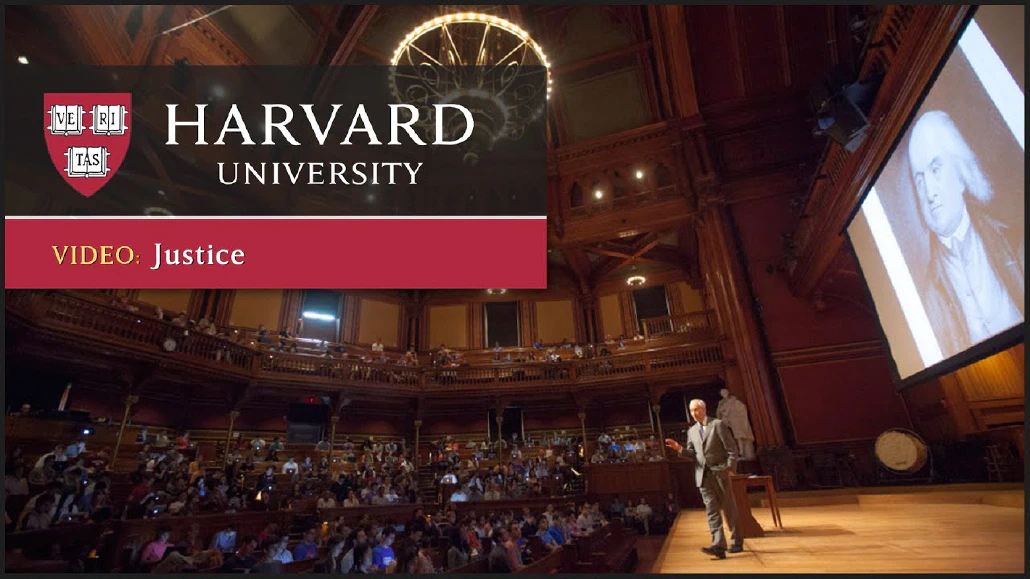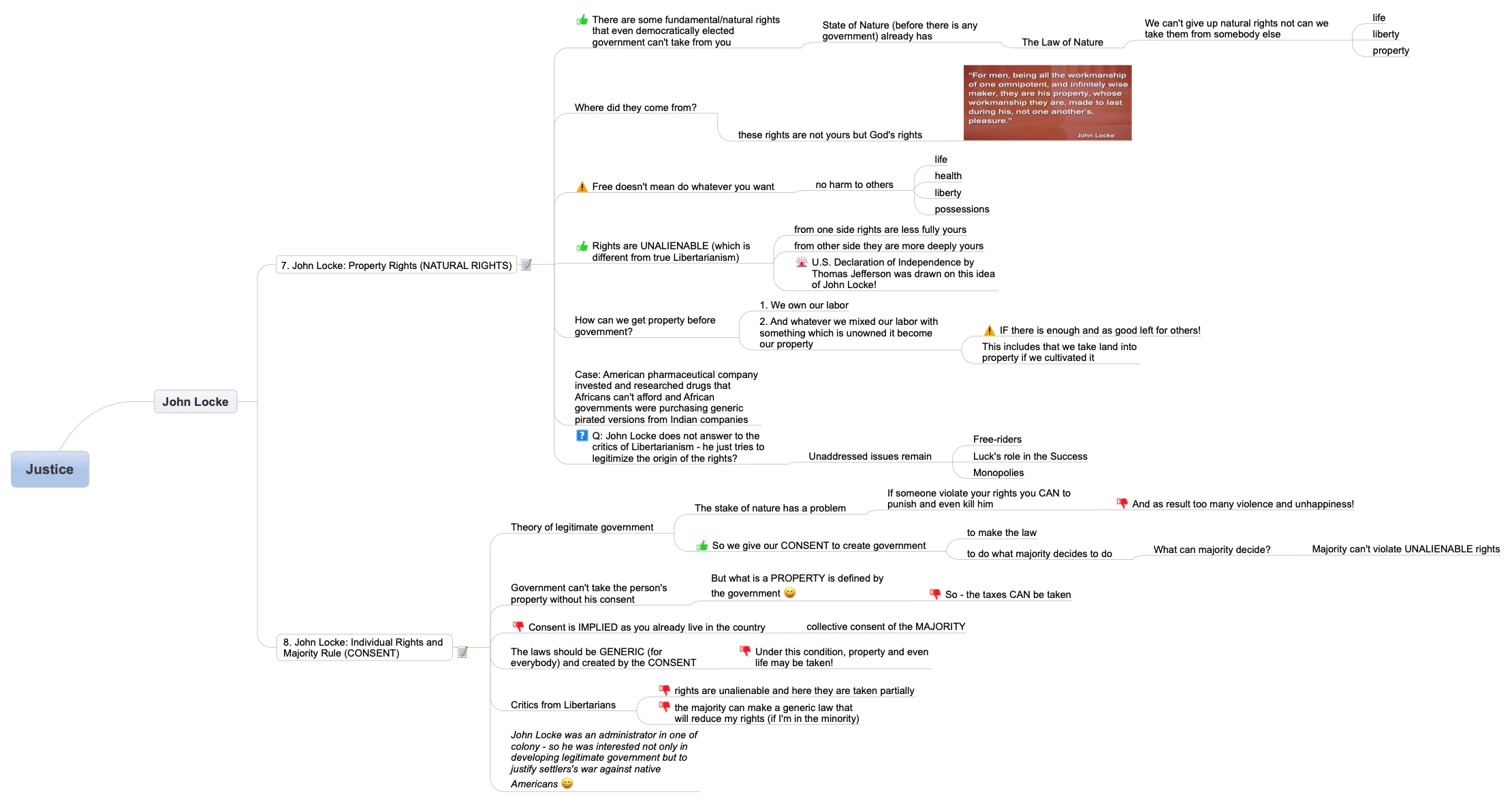Justice - 04 - John Locke

Next two lectures uncover the intricacies of John Locke’s theories on NATURAL RIGHTS and CONSENT. Quite an interesting turn in Philosophy of Justice. However, the problem with John Locke is that borders in his ideas are a bit fuzzy.
I am sharing my mind-map from the lectures as usual:

Summary of the lectures:
Lecture 7. John Locke: Property Rights (NATURAL RIGHTS)
In this lecture, the speaker discusses John Locke’s beliefs on individual rights, which include the natural rights to life, liberty, and property. Locke argues that these rights are inherent to individuals and that the state of nature, a state of liberty, has a law of nature that constrains individuals from violating each other’s natural rights. The lecture also emphasizes the importance of understanding how property fits into Locke’s theory of natural rights. The lecture then transitions to the issue of respecting patents and intellectual property rights in the context of the AIDS crisis in South Africa. The South African government started buying a generic version of the drug produced by an Indian company as the American AIDS drugs were too expensive for most Africans. The US government and pharmaceutical companies sued the South African government, but eventually gave in. The lecture then presents a critique of Locke’s account of private property by Rochelle, who argues that it justifies European cultural norms and the appropriation of land from Native Americans during European settlement. Dan defends Locke, arguing that Locke’s definition of labor-based property rights could apply to Native Americans’ use of the land, even if they did not enclose it with fences. The lecture suggests that Locke’s account of private property remains a controversial topic.
Lecture 8. John Locke: Individual Rights and Majority Rule (CONSENT)
The lecture discusses John Locke’s idea of consent as the basis of legitimate government and how it applies to taxation. Locke believed that fundamental rights constrain what government can do and that these rights are natural rights. He argued that consent is necessary to escape the state of nature, where everyone can enforce the law of nature, making it a violent place. Individuals must undertake an act of consent to create a government where everyone agrees to abide by the majority’s decisions. In terms of taxation, the lecturer argues that it is legitimate only if given by collective consent, not individual consent. Implied consent, generated by taking government services, creates an obligation to obey the government, but some students argue that it is not strong enough to do so. The lecture raises the challenge of military conscription to Locke’s view on natural rights and consent. Locke’s account of legitimate government emphasizes that unalienable rights to life, liberty, and property create limits on legitimate government, not what we consent to but what we lack the power to give away.
Links: